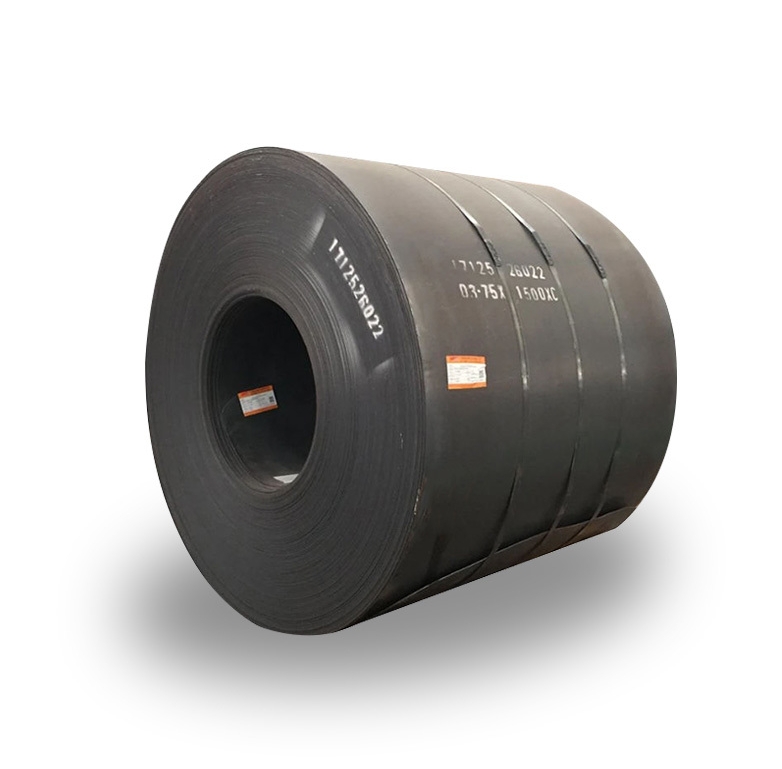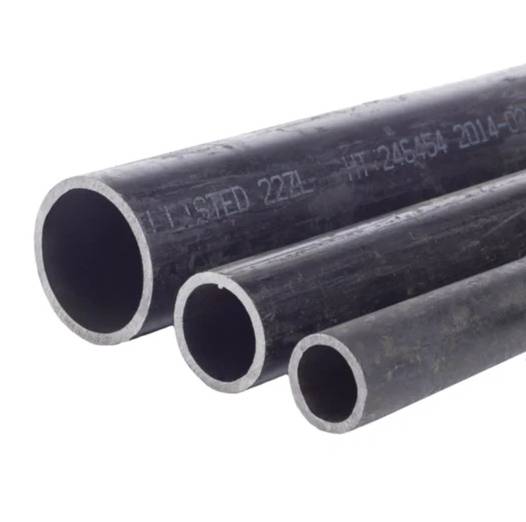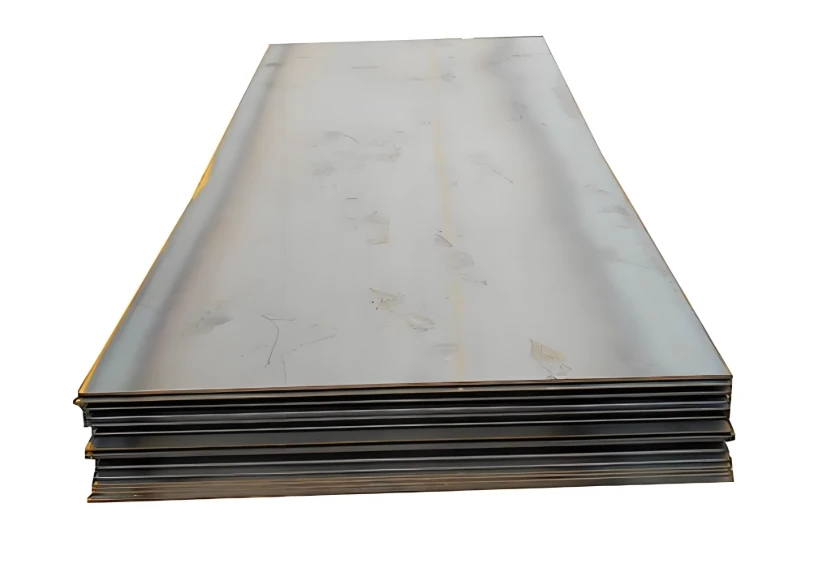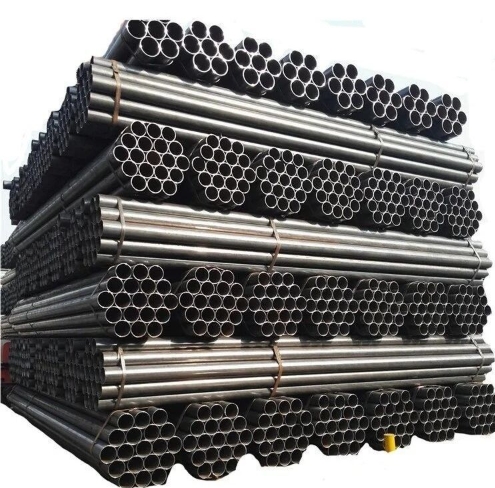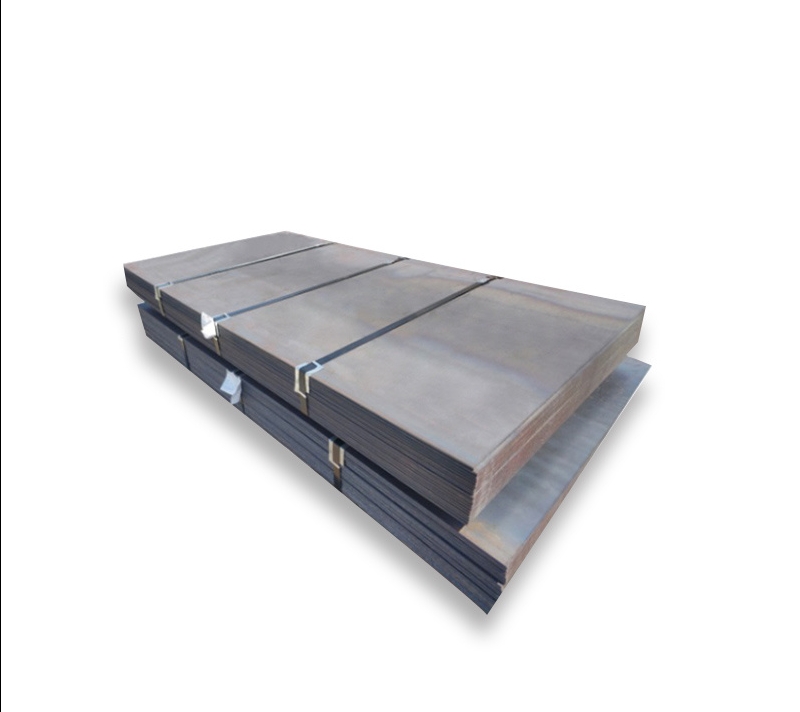P110 remains the industry’s go-to high-strength grade for heavy-duty casing and tubing where high collapse and tensile performance are required. Sizes follow the familiar OCTG nominal range from 2-3/8″ up to 20″, produced mostly as seamless or ERW tubes with a broad set of thread types. In 2025, spot and contract prices vary widely by region and supply chain status — Chinese mills and large integrated producers typically offer the most competitive ex-works pricing, while used/second-hand and short-lead emergency stocks in the U.S. and Europe command a premium.
What “P110” and API 5CT mean
“API 5CT” is the widely adopted specification for OCTG (oil country tubular goods) — casing and tubing. It defines chemistry, mechanical properties, dimensional tolerances, testing and acceptable thread types for downhole tubulars. The most recent edition (11th) updated several requirements and its monogram program became effective in 2025, which has implications for manufacturers and buyers who need monogrammed product certification.
P110 is a high-strength grade inside the API 5CT family intended for demanding well conditions where higher collapse resistance and yield/tensile strength are required. It is frequently specified in deep wells, high differential pressure scenarios and when thinner walls at larger diameters are desirable for weight savings.
Key mechanical and chemical characteristics of P110
P110 is a quenched-and-tempered carbon steel grade (or microalloyed equivalent) with minimum yield and tensile properties set by API 5CT. Compared to mid-range grades (J55, K55, N80), P110 delivers higher yield strength and joint strength, which improves collapse and burst resistance.
Short, practical notes:
-
Typical minimum yield and tensile are set in the standard and vary by wall thickness and heat treatment.
-
Mill certificates should include chemical composition (C, Mn, S, P, and microalloying elements) and heat treatment records.
-
Customers should specify whether PSL-1/PSL-2/other product levels or the current API 5CT monogram requirement apply. Recent editorial changes to the standard mean buyers must state the edition and any addenda they require.
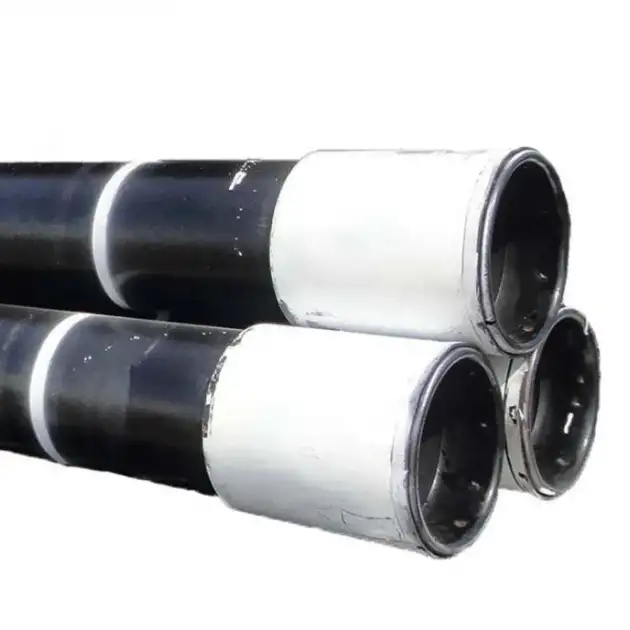
Common nominal sizes, wall thicknesses and weights (quick chart)
Below are the most commonly stocked API 5CT nominal sizes for P110 (nominal OD). This is a compressed table — for mill drawings and detailed drift/ID the API tables should be consulted.
| Nominal size (in) | Typical OD (in) | Common weights (lb/ft) or range | Typical wall thickness (in) |
|---|---|---|---|
| 2-3/8″ | 2.375 | 4–11 lb/ft | ~0.095–0.218 |
| 2-7/8″ | 2.875 | 4.7–12 lb/ft | ~0.109–0.250 |
| 3-1/2″ | 3.5 | 5.8–17 lb/ft | ~0.133–0.312 |
| 4-1/2″ | 4.5 | 8.0–23 lb/ft | ~0.188–0.375 |
| 5-1/2″ | 5.5 | 9–27 lb/ft | ~0.188–0.450 |
| 6-5/8″ | 6.625 | 13–33 lb/ft | ~0.219–0.500 |
| 7″ | 7.0 | 20–41 lb/ft | ~0.250–0.625 |
| 7-5/8″ | 7.625 | 20–46 lb/ft | ~0.250–0.750 |
| 8-5/8″ | 8.625 | 26–58 lb/ft | ~0.312–0.875 |
| 9-5/8″ | 9.625 | 36–65 lb/ft | ~0.375–1.000 |
| 10-3/4″ | 10.75 | 38–80 lb/ft | ~0.406–1.125 |
| 11-3/4″ | 11.75 | 46–85 lb/ft | ~0.406–1.250 |
| 13-3/8″ | 13.375 | 54–100 lb/ft | ~0.469–1.375 |
| 16″ | 16.0 | 70–120 lb/ft | ~0.500–1.625 |
| 18-5/8″ | 18.625 | 76–140 lb/ft | ~0.500–1.875 |
| 20″ | 20.0 | 100–160 lb/ft | ~0.625–2.00 |
These ranges are representative of standard API nominal offerings; mill charts and API tables give precise drift, ID, and weight for each standard weight per foot. Consult API tables or trusted mill dimension PDFs for official tolerances.
Manufacturing forms, end finishes and threads
Two principal manufacturing routes for OCTG appear in the market:
-
Seamless (SMLS): dominant for higher grades and large OD/ thicker walls. Preferred for deep/high-stress wells.
-
Welded / ERW: used where cost or lead time matters and grade/size permit. Modern ERW mills produce high-quality tubes but buyers should verify mill testing and post-heat treatment.
End finishes and threads: common casing threads are BC (buttress), LC/SC (long/short round threads), and premium connections (API or proprietary premium treads). Tubing may be EU/NU or integral connections depending on the application. Buyers must specify thread type, API Spec 5B run-in and torque testing requirements, and whether couplings are included.
Global price snapshot — 2025 (comparison & drivers)
Short context: OCTG pricing in 2025 is driven by raw steel costs, mill utilization, freight, mill certification (API monogram), exchange rates, and regional demand. Contract prices differ from spot; small orders and single-length purchases cost more per unit.
Representative 2025 ranges (indicative):
-
China (mill/ex-works P110 OCTG): typically US$550–900 per tonne for new production lots in catalogue listings (small MOQs and lower-spec offers at the low end); higher when API monogram or premium heat treatment is required.
-
India: mills often sit between Chinese and global prices — export quotes frequently start slightly higher than domestic Chinese mill quotes; rough ballpark comparable to China but with variability due to import duties and freight. (See supplier portals for real-time quotes.)
-
United States / Europe (new mill material from integrated suppliers): premium over Far East supply due to higher manufacturing & certification costs; spot prices per foot for used/stock pipes can vary wildly (examples of used stock listing show $19/ft to aggressive low prices for bulk loads). Premium new material from Tenaris/US mills costs substantially more on a delivered basis.
Important price table — 2025 (indicative ranges)
| Item | China ex-works (USD/ton) | India ex-works (USD/ton) | USA delivered (USD/ton or $/ft*) |
|---|---|---|---|
| Small OD P110 (2-7/8″, thin wall) | 550 – 850 | 600 – 900 | 800 – 1,400 (delivered) |
| Mid OD P110 (5-1/2″, 0.312–0.450″) | 600 – 900 | 650 – 950 | 900 – 1,600 (delivered) |
| Large OD P110 (9-5/8″, 0.625–1.0″) | 650 – 1,000 | 700 – 1,050 | 1,000 – 2,000+ (delivered) |
| Premium monogram / tight-spec | +5–20% over base | +5–25% | +15–50% |
* US delivered prices depend heavily on length, inspection, coupling and testing; some used stock postings show per-foot bargains but lack full documentation. Examples of marketplace variances are available via online classified and trading platforms.
Why ranges are wide
-
Specification level (PSL / API monogram) and special heat-treatment increase cost.
-
Threading and coupling (premium connections) add machining cost.
-
Small orders raise per-unit cost; long contract volumes secure lower mill pricing.
-
Freight and duties change delivered cost dramatically.
Procurement and QC checklist
When buying P110 casing/tubing, insist on the following in the PO and on mill documentation:
-
API edition and addenda referenced (e.g., API 5CT 11th edition + any addenda with effective dates).
-
Grade and heat-treat specification (P110), with mill heat-treatment records and mechanical property test reports.
-
Mill certificate (MTC) that lists chemical analysis, heat number, mechanical tests, and nondestructive test (NDT) results.
-
Threading details (type, make-up torque, thread compound allowances) and coupling inclusion.
-
Drift/ID and weight tolerances per API tables. Use official tables for drift diameters.
-
Third-party inspection (TPI) if required — visual, UT, dimensional verification and thread gauge checks.
-
API monogram: specify if monogram certification is mandatory (affects supplier selection and price).
Short tip: Request a sample length for thread inspection and include acceptance criteria in the contract.
Logistics, lead time and inventory advice
-
Stock items: Chinese mills and large service centers often have standard sizes in stock and can ship quickly — ideal for tight schedules. Stock items usually ship within 7–30 days depending on quantity and finishing.
-
Custom orders: special weights, premium threads or large OD seamless pipe need factory scheduling — lead times are typically 60–120+ days depending on mill capacity.
-
Shipping: OCTG is heavy and bulky; consider FOB vs CIF terms carefully and calculate inland freight and stevedoring. For urgent needs, local stock or brokers may be preferable despite higher unit cost.
-
Documentation: ensure packing list declares heat numbers, length, couplings and end finish; missing paperwork often delays customs clearance and field acceptance.
Why choose Luokaiwei (practical commercial note)
Luokaiwei is a China-based OCTG and tubular supplier with factory integration. For procurement teams considering cost and lead time, Luokaiwei offers:
-
Direct factory pricing — competitive ex-works quotes (100% factory price advantage for suitable order sizes).
-
Fast turn on stocked items — many common P110 sizes held in factory stock for rapid shipment.
-
Custom services — special threading, premium connection finishing and coupling supply per customer request.
-
Full traceability — mill certificates and testing reports available on request.
(If you’d like, Luokaiwei can provide sample material, inspection reports, and CIF/DAP quotes to your destination port — request sizes, weight per length and preferred connection type.)
Typical applications and selection advice
P110 is selected when:
-
High collapse or burst resistance is needed (deep or sour wells).
-
Lower weight at a given strength is desired (thinner wall but higher grade).
-
Production or injection wells needing long service life under mechanical stress.
Selection considerations:
-
For high H₂S / sour environments evaluate corrosion-resistant alloying or internal/external coatings.
-
For premium connections (higher fatigue/cyclic loading) choose reputable premium thread manufacturers and verify make-up procedures.
FAQs
Q1 — Is P110 always necessary for deep wells?
Not always. While P110 offers superior mechanical strength, selection depends on collapse, burst and tensile requirements, economics, and well environment. Often designers balance grade and wall thickness to meet performance and cost goals.
Q2 — What documentation should I require on delivery?
Minimum: mill test certificate (MTC) with chemical and mechanical results, heat number traceability, thread gauge acceptance, and inspection reports. If you require API monogram, state it in the purchase order.
Q3 — How much more does API monogram material cost?
Monogrammed product typically costs a premium (varies by mill); plan for an uplift in the mill quote (often expressed as percentage above non-monogram material). Exact uplift depends on mill certification costs and production scheduling.
Q4 — Can ERW P110 match seamless performance?
High-quality ERW with proper heat treatment can meet API requirements for many applications, but seamless is still preferred for highest-demand wells. Always verify mechanical testing and NDT records.
Q5 — What are realistic lead times for P110 today?
Stock items: often 1–4 weeks; custom seamless runs or premium threads: 8–20+ weeks. Always confirm with the supplier’s current production schedule.
Practical next steps for buyers
-
Prepare a technical purchase requisition listing API edition, grade (P110), thread type and acceptance tests.
-
Ask Luokaiwei (or preferred mills) for sample MTCs and a formal quotation (ex-works, FOB and CIF options).
-
Request TPI or witness testing for first orders or large contract lots.
-
For urgent needs, request stocked lengths and express shipping quotes.
Authoritative references
- API — API Specification 5CT (notice about 11th edition and implementation)
- API — Addendum to the 11th edition of API 5CT (May 20, 2025)
- Wikipedia — Casing string (technical overview and terminology)
- Api 5ct N80 Type Q Tubing Pipes
- OilProduction.net — API casing tables (dimensions, drift and weights)



